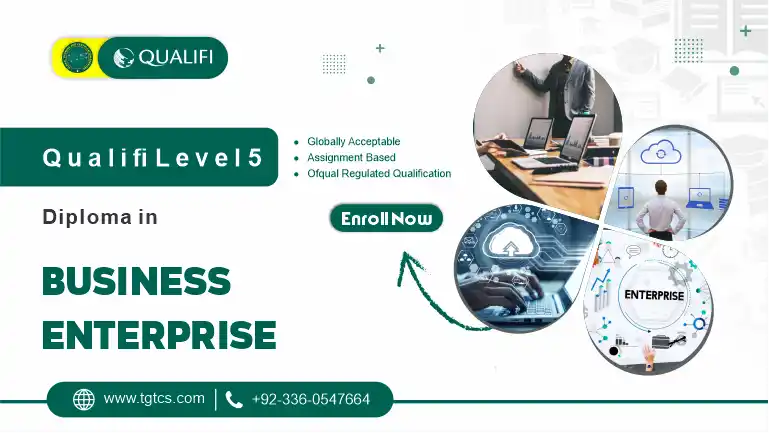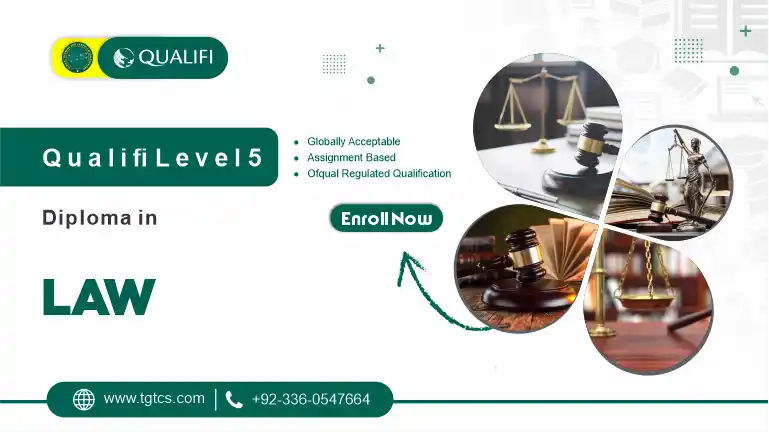ICTQual Level 3 Diploma in Civil Engineering 60 Credits – 6 Months
The ICTQual Level 3 Diploma in Civil Engineering (60 credits) is the perfect course for individuals eager to expand their expertise in the dynamic and ever-evolving construction and infrastructure industry. This 6-month program offers an in-depth understanding of civil engineering principles, project management, structural design, and construction methods. Whether you are starting your career or looking to enhance your qualifications, this course provides the skills needed to succeed in a variety of civil engineering roles.
The ICTQual Level 3 Diploma in Civil Engineering is a comprehensive qualification designed for those seeking to develop advanced knowledge and technical skills in the civil engineering sector. It consists of 60 credits and takes 6 months to complete. This course covers key areas such as structural design, surveying, construction materials, site management, and project planning. It is perfect for individuals who want to pursue higher-level roles in civil engineering or those looking to specialize in specific areas within the field.
The ICTQual Level 3 Diploma in Civil Engineering offers an excellent opportunity for those looking to advance their careers in the civil engineering and construction sectors. With a combination of theoretical learning and practical application, this course provides the perfect foundation for a successful career. Whether you are starting fresh, up skilling, or looking to progress into higher qualifications, this diploma will help you reach your goals.
The Global Training and Certification Services (TGTCS) is Directly Approved Training Centre of ICTQual
The ICTQual Level 3 Diploma in Civil Engineering (60 Credits – 6 Months) is a comprehensive qualification designed for individuals looking to advance their skills and knowledge in the civil engineering field. Over the course of 6 months, learners will gain a solid understanding of key civil engineering concepts, including structural design, construction materials, surveying, and project management. The course also covers health and safety regulations and site management practices to ensure graduates are prepared for real-world engineering challenges.
This diploma is ideal for aspiring civil engineers, professionals in the construction industry looking to enhance their qualifications, and school leavers or career changers interested in entering the civil engineering sector. The program offers a practical, hands-on approach, equipping students with the essential technical and problem-solving skills needed for a successful career in civil engineering.
Upon completion, graduates will be prepared for various entry-level roles such as civil engineering technician, site engineer, and surveying technician, with opportunities for further study and career advancement in the civil engineering and construction industries.
Learning Outcomes for the Level 3 Diploma in Civil Engineering 60 Credits – 6 Months:
Construction Technology and Materials
Learning Outcomes:
Identify and explain the properties and uses of various construction materials (e.g., concrete, steel, timber, composites) in civil engineering projects.
Assess material performance based on durability, cost-effectiveness, and suitability for different construction applications.
Understand and implement modern construction technologies and material testing methods.
Evaluate the sustainability and efficiency of a construction project based on material selection.
Structural Mechanics and Design
Learning Outcomes:
Apply fundamental principles of structural mechanics to understand the impact of forces such as tension, compression, shear, and bending on structures.
Perform load calculations for structural elements like beams, columns, and foundations, accounting for factors like dead loads, live loads, and environmental conditions.
Design basic structural systems in accordance with relevant standards and regulations to ensure safe and efficient construction.
Evaluate the stability of structures and propose solutions to address any identified risks or weaknesses.
Site Surveying and Geotechnics
Learning Outcomes:
Use surveying tools (e.g., total stations, levels, GPS) to accurately measure and record site data.
Interpret topographical maps and site plans to inform engineering design and decision-making.
Analyze soil properties such as compaction, bearing capacity, and soil types to determine suitable foundation types.
Apply geotechnical principles to assess site conditions and recommend foundation designs or soil treatment methods.
Health, Safety, and Environmental Practices
Learning Outcomes:
Understand and implement health and safety regulations in construction and civil engineering projects to safeguard workers and the public.
Develop risk management strategies to minimize hazards and ensure compliance with safety standards.
Promote sustainability by assessing the environmental impacts of civil engineering projects and proposing mitigation strategies.
Apply environmental laws and guidelines to reduce the ecological footprint of construction activities.
Project Management Fundamentals
Learning Outcomes:
Apply core project management principles to effectively plan, execute, and monitor civil engineering projects.
Create project schedules, allocate resources (labor, materials, equipment), and manage timelines to meet deadlines and budgets.
Monitor and control project costs through financial management techniques, including cost estimation and budgeting.
Assess project risks and implement mitigation strategies to avoid delays or budget overruns.
Civil Engineering Drawing and CAD
Learning Outcomes:
Produce accurate technical drawings of civil engineering designs using both traditional and CAD (Computer-Aided Design) software.
Interpret complex engineering drawings, identifying key components, dimensions, and specifications.
Use CAD software to design and visualize civil engineering structures, such as roads, bridges, and drainage systems.
Create clear, detailed design documentation that supports project planning, permitting, and construction phases.
These learning outcomes ensure that graduates of the ICTQual Level 3 Diploma in Civil Engineering acquire the practical and in-demand skills required to succeed in various roles within the civil engineering industry.
Mandatory Units
The Units of Level 3 Diploma in Civil Engineering 60 Credits – 6 Months are as ;
- Construction Technology and Materials
- Structural Mechanics and Design
- Site Surveying and Geotechnics
- Health, Safety, and Environmental Practices
- Project Management Fundamentals
- Civil Engineering Drawing and CAD
The Course Benefits of Level 3 Diploma in Civil Engineering 60 Credits – 6 Months are as :
The ICTQual Level 3 Diploma in Civil Engineering offers a wide range of benefits that will enhance your skills and open doors to exciting career opportunities within the civil engineering and construction sectors. Here’s a breakdown of the key benefits of completing this course:
- Comprehensive Knowledge and Skills
This course provides a well-rounded education in civil engineering, covering key areas such as construction materials, structural mechanics, project management, surveying, and health and safety. You’ll gain both theoretical knowledge and practical skills, preparing you for real-world challenges in civil engineering. - Accredited Qualification
The ICTQual Level 3 Diploma is accredited by a recognized awarding body, ensuring that your qualification is respected and valued by employers within the civil engineering and construction industries. This accreditation can give you a competitive edge in the job market. - Enhanced Career Opportunities
Upon successful completion of the course, you’ll be equipped to pursue a wide range of roles within the civil engineering sector, such as:- Civil Engineering Technician
- Site Engineer
- Surveying Technician
- Structural Design Assistant
These entry-level roles offer a stepping stone to more advanced positions as you gain experience and further education.
- Preparation for Further Education
If you’re considering higher-level qualifications, this diploma is a solid foundation for pursuing further education, such as a Level 4 HNC in Civil Engineering or a Bachelor’s Degree in Civil Engineering. It offers the necessary skills and knowledge to succeed in advanced study and specialized roles. - Practical, Industry-Relevant Skills
The course focuses on practical skills that are highly relevant to the modern civil engineering industry, including the use of CAD software, construction technology, site surveying, and project management. These hands-on skills ensure that you are well-prepared for on-site and office-based roles. - Career Progression Pathways
The ICTQual Level 3 Diploma acts as a stepping stone to more senior positions. It gives you the chance to gain expertise in critical areas such as structural design, project management, and surveying, which are essential for progression into supervisory or management roles in civil engineering. - Industry Recognition
The skills and competencies you gain during this course are aligned with the latest industry standards and best practices. Graduates are highly regarded by employers for their practical expertise and ability to contribute to engineering projects from day one. - Flexibility of Learning
The course offers flexibility in learning, allowing you to study via online or blended learning formats. This flexibility ensures you can balance your education with work, personal commitments, or other responsibilities, making it easier to fit learning into your lifestyle. - Increased Earning Potential
With a solid qualification in civil engineering, you’ll be more competitive in the job market, increasing your earning potential. Civil engineering roles offer excellent salary prospects, especially as you gain experience and take on more advanced responsibilities. - Networking Opportunities
Throughout the course, you’ll have opportunities to connect with industry professionals, instructors, and fellow students. This network can be invaluable for career development, job hunting, and gaining insights into the latest trends in the civil engineering field.
The ICTQual Level 3 Diploma in Civil Engineering is ideal for individuals who are eager to build a strong foundation in civil engineering and progress in the construction and infrastructure sectors. This course is suitable for a variety of learners, including:
- Aspiring Civil Engineers
If you are passionate about civil engineering and want to gain the skills and knowledge required for a successful career in the field, this course is perfect for you. It provides the essential technical expertise and practical experience needed to pursue roles such as Civil Engineering Technician or Site Engineer. - School Leavers or Career Changers
If you have recently finished school or are looking to change careers, this diploma offers an excellent entry point into the civil engineering industry. It’s suitable for individuals who are motivated to gain hands-on, industry-relevant skills and start a new career in engineering or construction. - Technicians and Support Staff in Construction
If you are currently working in a related field, such as construction or infrastructure, and want to expand your technical expertise, this diploma provides advanced knowledge that will enhance your role. It’s ideal for those seeking to upskill and take on more responsibilities, such as project management or technical design roles. - Professionals Seeking Career Progression
If you’re already working in a civil engineering or construction-related job but wish to take your career to the next level, this diploma will help you enhance your qualifications and provide the specialized skills necessary to advance into higher-level roles. You may already have some experience in construction, but this qualification will give you the in-depth technical knowledge to move into more senior engineering positions. - Individuals Interested in Further Education
If you plan to continue your education, the ICTQual Level 3 Diploma in Civil Engineering is an excellent stepping stone to further qualifications. It prepares you for higher education opportunities, such as pursuing a Level 4 HNC or a degree in civil engineering or construction management. - Hands-On Learners
The ideal learner for this course is someone who thrives in a practical, hands-on learning environment. This qualification involves a significant amount of applied learning, including site surveying, structural design, and project management, all of which are essential skills for real-world engineering projects. - Detail-Oriented and Problem-Solving Individuals
Civil engineering involves complex problem-solving and attention to detail. If you have a keen interest in solving technical challenges, designing infrastructure, and managing construction projects, this diploma is well-suited to your strengths. - Motivated and Goal-Oriented Learners
This course is designed for individuals who are driven, committed to learning, and keen to pursue a career in civil engineering. If you’re looking for a structured qualification that equips you with the practical skills and knowledge to succeed, this diploma will provide the perfect foundation.
Progression Routes
Completing the ICTQual Level 3 Diploma in Civil Engineering opens a range of exciting progression opportunities. Graduates can enhance their skills, expand career prospects, and pursue further studies in civil engineering and related fields. Below are key pathways for future development after completing this diploma:
1. Further Education in Civil Engineering
For learners wishing to continue their education, the ICTQual Level 3 Diploma offers a solid foundation for higher-level qualifications, such as:
- Level 4 and Level 5 Diplomas in Civil Engineering: These advanced diplomas delve into specialized areas of civil engineering, including advanced project management, structural design, and infrastructure development.
- Specialized Courses: Further training in areas such as structural engineering, geotechnical engineering, or transportation engineering allows for a deeper focus on specific fields within civil engineering.
2. Professional Qualifications and Certifications
After completing the Level 3 Diploma, individuals can pursue industry-recognized certifications and professional memberships, which will enhance their credibility and career prospects, including:
- Chartered Engineer (CEng): Through additional higher education and professional development, graduates can work toward becoming a Chartered Engineer with organizations like the Institution of Civil Engineers (ICE) or the Institution of Structural Engineers (IStructE).
- Technician Membership (EngTech): EngTech status demonstrates proficiency in applying engineering principles in the workplace, ideal for those early in their careers.
- Project Management Certifications: Graduates seeking project management roles can enhance their credentials with certifications such as PRINCE2 or Project Management Professional (PMP).
3. Career Advancement and Employment Opportunities
Graduates of the Level 3 Diploma are well-prepared for entry-level roles in civil engineering. Many can progress into specialized positions, including:
- Civil Engineering Technician: Assist engineers with designing, planning, and supervising construction projects. Specializations include highways, water management, and structural analysis.
- Construction Site Manager: Oversee construction sites, ensuring safety, quality control, and timely completion of projects.
- Structural Engineer: After gaining further qualifications and experience, graduates can design infrastructure such as buildings and bridges.
- Surveyor or Quantity Surveyor: Graduates with analytical skills can pursue surveying roles, involving land measurement, building condition assessment, and cost estimation.
4. Apprenticeships and On-the-Job Training
For those who prefer practical, hands-on experience while earning, apprenticeships provide another route to career development. Through apprenticeships, diploma holders can:
- Gain Practical Experience: Work directly in construction, engineering design, or project management while earning a salary.
- Develop Specialized Skills: Companies offer apprenticeship programs in specific areas such as highways, environmental engineering, or building services.
5. Entrepreneurial Opportunities
Graduates with an entrepreneurial mindset can explore business opportunities in civil engineering, such as:
- Civil Engineering Consultancy: Start a consultancy offering services such as structural analysis, design planning, or project management.
- Construction Project Management: Launch a business specializing in overseeing large-scale civil engineering projects, from planning to execution.
6. International Opportunities
Civil engineering is a global profession, with many international opportunities. Graduates can consider:
- International Projects: Civil engineers are in high demand worldwide, especially in growing economies. Graduates can work on infrastructure projects in emerging markets or contribute to international development.
- Working with Global Firms: Large engineering firms often have offices across multiple countries, offering opportunities to work on diverse, global projects.
The ICTQual Level 3 Diploma in Civil Engineering offers a comprehensive foundation for both career and educational progression. Whether you choose to continue your studies, earn professional certifications, or jump directly into the workforce, this qualification provides the skills and knowledge needed to build a successful and rewarding career in civil engineering.
Course Overview
Course Level
Level 3
Course Units
06 Mandatory Units
Duration
6 Months






